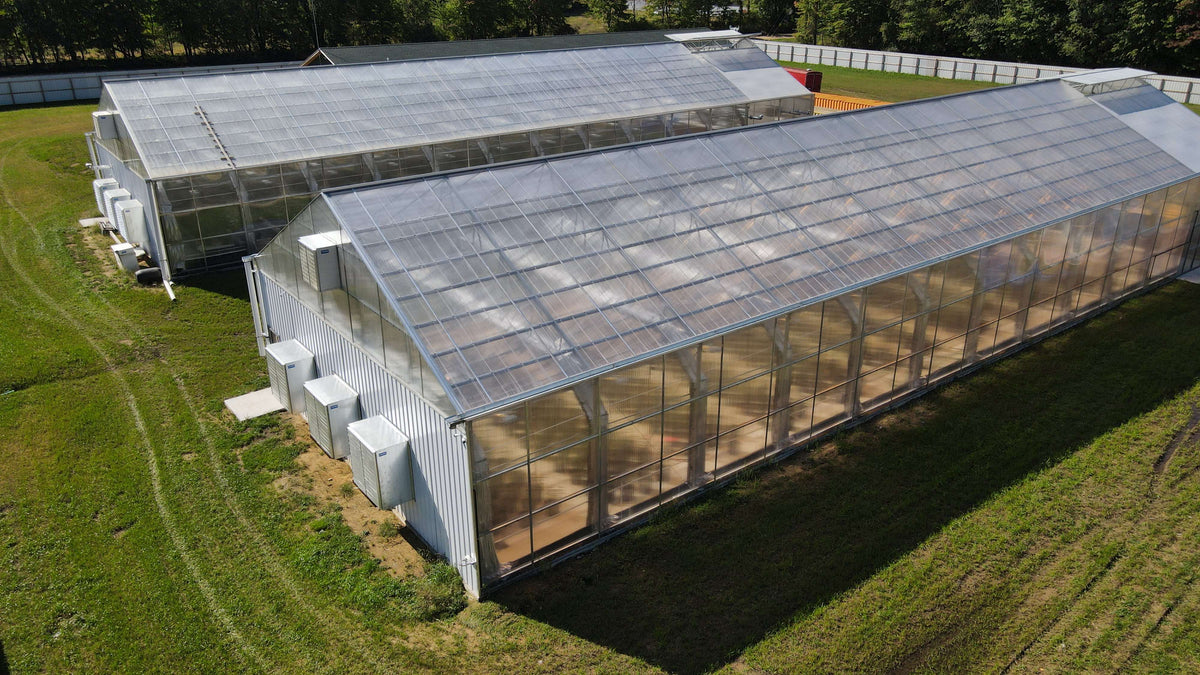Monarch Greenhouse Utah: Raising Growing Areas with Accuracy Construction
Wiki Article
Greenhouse Farming: Making The Most Of Crop Returns and Sustainability
With managed settings and lowered water usage, greenhouse farming supplies the ideal remedy for year-round production of fresh produce. Discover the benefits of greenhouse farming and begin enjoying the benefits today!Advantages of Greenhouse Farming
Are you questioning what makes greenhouse farming so beneficial? One of the significant advantages of greenhouse farming is the ability to manage the environment in which plants are grown.An additional advantage of greenhouse farming is the reduction in water use. By utilizing water much more successfully, greenhouse farming helps to save this priceless resource.
Furthermore, greenhouse farming permits far better pest and illness monitoring. With the controlled atmosphere, it is easier to avoid and control the spread of parasites and diseases. This reduces the demand for hazardous pesticides, making greenhouse-grown crops more secure and extra ecologically friendly.
Moreover, greenhouse farming gives protection against extreme weather occasions. Plants grown in greenhouses are protected from hefty rainfall, solid winds, and hailstorms, which can harm or destroy outdoor crops. Monarch Greenhouse builder Utah. This protection makes sure an extra trustworthy and secure plant yield, also during unforeseeable climate condition

Making Best Use Of Plant Yields With Controlled Environments
To take full advantage of crop yields in greenhouse farming, you can achieve optimum results by managing the setting. One of the essential advantages of greenhouse farming is the ability to manage these environmental variables, permitting you to tailor them to the certain demands of each plant. By executing these regulated environments, you can make best use of crop returns and attain consistent, high-grade produce throughout the year.Encouraging Sustainability Via Greenhouse Farming
Maximize sustainability in greenhouse farming by implementing effective resource management techniques. One key element of promoting sustainability is the management of water usage. By implementing systems such as drip watering and recirculation, you can significantly minimize water waste and make sure that every decrease counts. Additionally, making use of biodegradable and organic materials for parasite control and fertilizing can aid minimize ecological influence. Integrated Insect Monitoring (IPM) methods, for instance, include making use of useful pests to regulate parasites, lowering the need for dangerous pesticides. Energy consumption can be lowered by utilizing sustainable energy resources, such as solar panels, to power greenhouse operations. This not just reduces dependence on fossil gas but likewise decreases greenhouse gas emissions. Correct waste administration is another critical aspect in advertising sustainability. Carrying out recycling and composting systems can reduce the quantity of waste sent to garbage dumps while also supplying nutrient-rich compost for plant development. Incorporating sustainable techniques in greenhouse design, such as making use of energy-efficient materials and enhancing all-natural lighting, can additionally boost sustainability. By taking on these resource administration strategies, you can contribute to a much more lasting future in greenhouse farming.Lowering Water Usage in Greenhouse Farming
By carrying out reliable water monitoring strategies, you can considerably decrease water usage in greenhouse farming. Water is an important source in agriculture, and saving it not only benefits the atmosphere however also aids to make the most of crop yields and profitability. One effective method to reduce water usage is through making use of drip watering systems. These systems supply water straight to the plant's origins, lessening dissipation and making certain that every decline is utilized effectively. Furthermore, monitoring and controlling the humidity levels inside the greenhouse can protect against unneeded water loss. By utilizing sensors and automated systems, you can bear grass adjust the air flow and watering as necessary, maximizing water usage based on the details demands of your crops. Another strategy is to capture and reuse rain. Gathering rainwater from the greenhouse roof covering and keeping it in tanks enables you to supplement your irrigation needs without relying entirely on freshwater sources. Furthermore, applying mulching methods can help preserve soil wetness, decreasing the regularity of irrigation. Mulch acts as an obstacle, avoiding water evaporation and maintaining the dirt cool and moist. By embracing these water-saving techniques, you can lessen water waste, save resources, and produce a more lasting future for greenhouse farming.Year-Round Manufacturing of Fresh Generate in Greenhouses
Greenhouses offer a controlled atmosphere that allows you to expand crops regardless of the outside weather conditions. Greenhouses can be equipped with heating and cooling systems to keep ideal temperature levels for different plants. By applying these methods, you can optimize the productivity of your greenhouse and delight in a consistent supply of fresh create all year long.
Conclusion
In verdict, greenhouse farming gives numerous benefits for making the most of crop returns and promoting sustainability. By utilizing regulated important source atmospheres, farmers can maximize growing conditions and raise productivity. Furthermore, greenhouse farming permits lowered water usage, making it an ecologically pleasant choice. The ability to produce fresh produce year-round in greenhouses makes certain a steady supply of nourishing food (Monarch Greenhouse builder Utah). In general, greenhouse farming is a lasting and reliable approach for meeting the needs of an expanding populace while minimizing ecological influence.One of the significant benefits of greenhouse farming is the ability to regulate the environment in which crops are grown.To make best use of crop yields in greenhouse farming, you can accomplish optimum outcomes by regulating the environment. One of the vital advantages of greenhouse farming is look at more info the capability to control these ecological elements, permitting you to customize them to the certain requirements of each crop.By carrying out efficient water management techniques, you can substantially minimize water use in greenhouse farming.In final thought, greenhouse farming offers numerous benefits for maximizing crop yields and promoting sustainability.
Report this wiki page